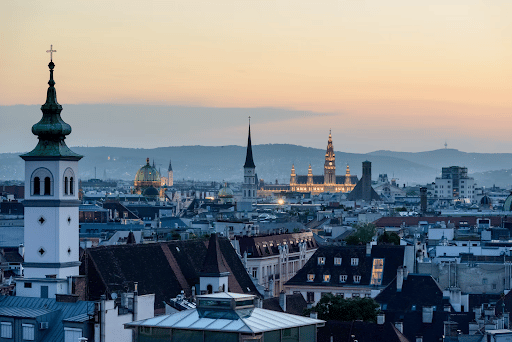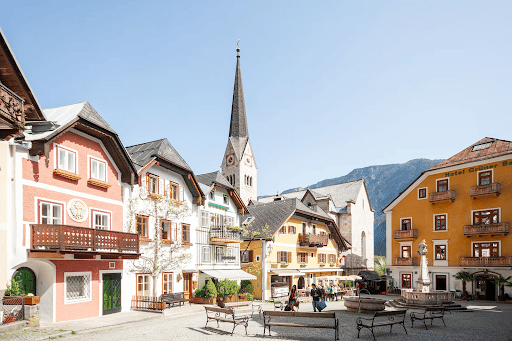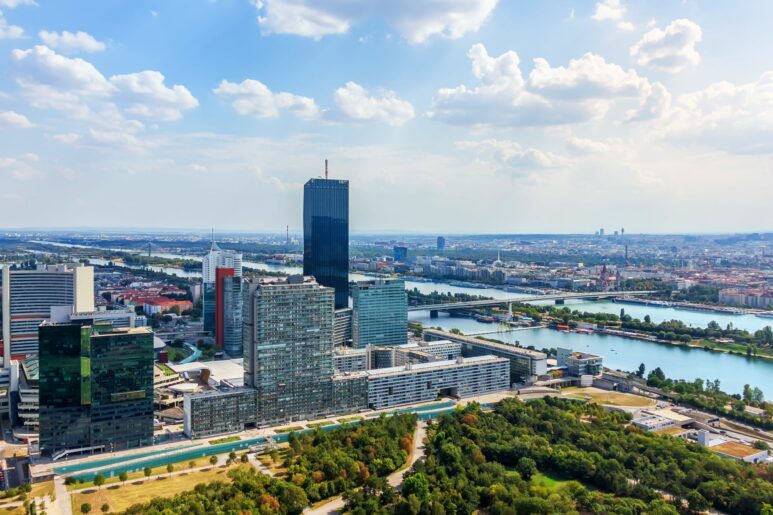Things to Know About Moving to Austria from the UK
Austria is a fascinating and beautiful country, full of unique culture and history, so it’s no wonder thousands of UK residents now consider this small, rich country home. Following the impact of Brexit, it can be difficult to know where Britons stand in terms of international travel. Visas, residency permits, and healthcare are just some of the things to consider when moving to Austria, with various other new bureaucratic barriers placed between the UK and Austria.
We recommend researching every element of living in Austria before departing to ensure your move is as seamless as possible. Our guide to moving to Austria covers everything you need to know before making your first step. Get a free moving quote with GMS for your Austrian removal today.

What to expect from Austria
Sitting in the heart of Europe, Austria’s stunning landscapes and charming towns have drawn tourists and expats from around the globe for decades. The 9 million-strong population continuously enjoy a high quality of life and an extremely healthy economy. Sharing borders with various fascinating other European countries, including Switzerland, Italy, and Slovakia, travel opportunities are rife in this small, vibrant country.
Vienna is an exciting and iconic city, home to around a quarter of the country’s population and a hub for international and European meetings. Countless galleries and museums can be found within the stunning streets, with a strong legacy of artists and intellects led by figures like Mozart and Freud. UK expats might find it difficult to buy property in Vienna, with high prices and few locations on the market. With no shortage of things to do and see, Vienna is an ideal place for expats to live or frequent while residing in Austria.

Moving to Austria after Brexit
While Brexit may have complicated some elements of moving to Austria for UK residents, Brits can rest assured that it is still well and truly possible. Visits to Austria shorter than 90 days are possible without a visa, provided that you own a valid UK passport, however, those hoping to move to Austria from the UK will need further visas and possibly other official documentation. Brits are now considered third-country nationals now that the UK has exited the European Union, meaning more bureaucratic obstacles are now in play. We’re here to help lay out some of your visa and work permit options.

The UK to Austria Visas
With the right qualifications, capital, or intentions, visas and residence permits can be acquired for your move. We recommend researching the various types of visas on offer for your specific travel purposes. If you are being transferred to an Austrian branch of your company or have been offered a position in Austria, the process of applying for a visa will become much easier.
Similar to entering countries like Austria, immigration is often more likely for more qualified people, which is calculated by a points system taking into account experience, education, language skill, age, and more. Following this points system, you may be invited to apply for a Job Seeker Visa, the time period and circumstances of which will depend on how many points you have earned. The following are some of the most popular ways to enter Austria.
- Red-White-Red Card: Qualified workers, based on points given for education, professional experience, age and language ability, can apply for this permit to allow them to work and live in Austria with their families.
- EU Blue Card: To be eligible for the EU Blue Card, no points system is necessary. Instead, applicants must be educated at university level, pass labour market tests, have received a job offer based in Austria, and will earn one and a half times the average Austrian salary. With this permit, holders are allowed free movement within the EU and earn the right to reside permanently in Austria.
- Very Highly Qualified Workers: If you score over 70 points on the Austrian immigration points system, you are able to apply for a Job Seeker Visa lasting 6 months. Upon receipt of a job offer, you can then apply for the Red-White-Red Card.
- Graduates: If you have studied at an Austrian university, you may extend your student residence permit for up to 12 months to find work or start your own business. If you wish to remain in Austria long-term, you will need to earn at least €2,500 a month.
- Settlement Permit: For Brits hoping to retire in Austria, the settlement permit is ideal. You must prove that you have the funds to support yourself, have health insurance, a place of residence, and some level of German communication skills.

Working in Austria
The Austrian economy is increasingly open to welcoming international workers, particularly those with sufficient language skills in both English and German. Expats searching for work within Vienna might be disappointed to find scarce opportunities or opportunities quickly filled by the large numbers of German expats there. However, if your company has a branch in Austria or if you have specialist skills, Austrian employees are open to considering international recruitment.
An ageing workforce means that Austria is now opening opportunities to skills overseas workers to fill gaps in vital sectors, such as research, engineering, and management positions. Tourism is also a very important sector in Austria, inviting expats to fill lower-level positions, particularly in Western Austria and in the Alps. If you’re searching for job opportunities in Austria, whether you’re in the UK or already in Austria, print publications are often more useful than websites and online forums.
The Arbeitsmarktservice (The Austrian Employment Service or AES) is an extremely comprehensive and useful source of information for international job seekers to learn about labour laws, contracts, and work culture in Austria.

Healthcare in Austria
Austria boasts one of the best public healthcare systems in Europe. If you are a resident or citizen of Austria, basic healthcare is accessible to you should you need it. Expats will need to pay tax into a health insurance scheme which then covers the taxpayer and their family for health, accident, or pension insurance. The Austrian healthcare system is very high quality and includes treatment in public hospitals, basic dental care, medication, and some specialist consultations.
As a professional international moving company, GMS are available to help you at any stage of your move to Austria. Find out about relocating to Austria and the removals process or get in touch for any other specific questions.






